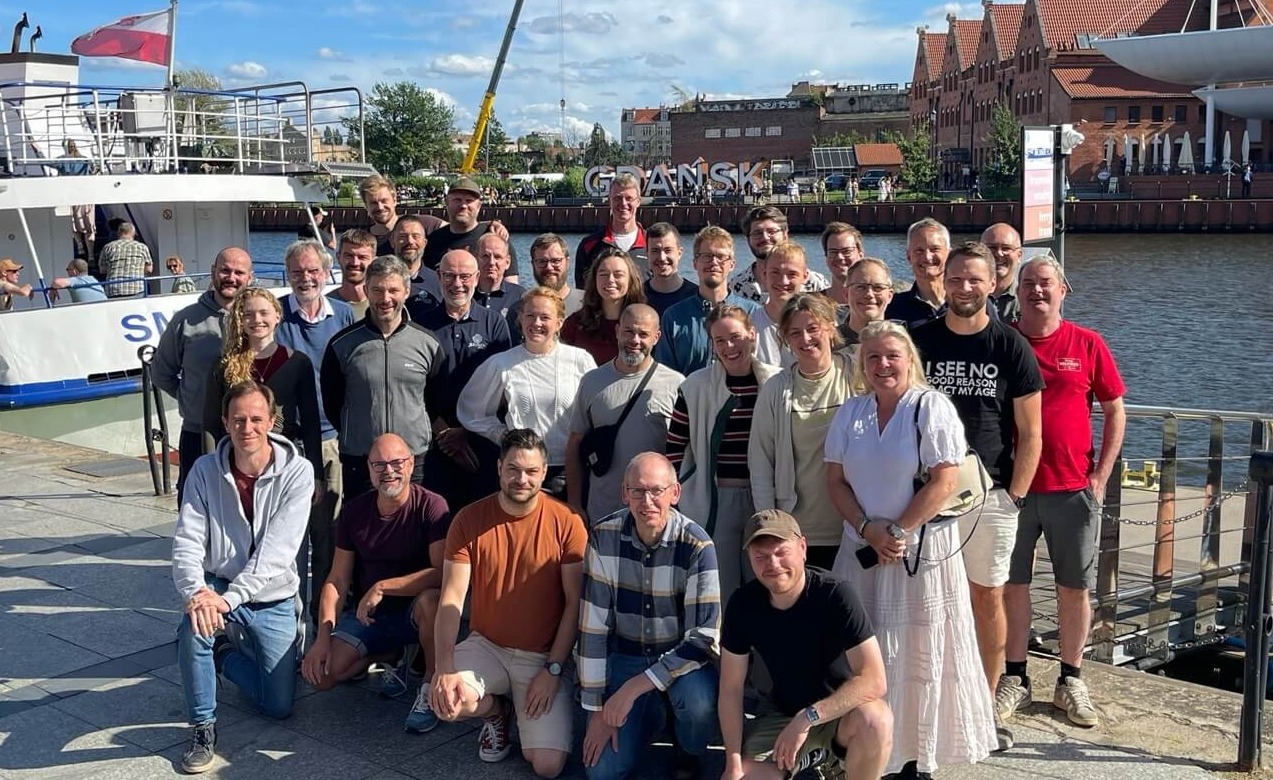How do you make decisions in an organization without bosses, where everyone has an equal say?
This is one of the questions we at JLI vision have had to deal with, because we insist on being a company built on self-management and a flat structure without traditional decision-making processes.
Until now, we have been able to manage with discussions in plenum at our weekly meetings and a general principle that everyone should be in agreement. However, as the company has grown to 40 colleagues, with expectations of significant further growth in the coming years, this process has been put under pressure.
The more people involved, the more frequently disagreements arise, and we found that colleagues were often left wondering what had actually been decided.
A new decision-making model at JLI
Therefore, decision-making processes in a flat organization were the most important item on the agenda when we held our annual company seminar this month. We traveled to Gdansk in Poland to combine business with cultural and social activities, and through group work and joint discussions, we arrived at a new decision-making model.
We’ll disclose the model here, as this may serve as inspiration for other companies that wish to have self-management as a guiding principle.
 The goal was to formalize a decision-making process so that no one is left in doubt about how decisions are made and, not least, when a decision has been made.
The goal was to formalize a decision-making process so that no one is left in doubt about how decisions are made and, not least, when a decision has been made.
That is why we now have four types of decisions.
1. Individual or small group decisions
These are the most common types of everyday decisions. For example: “Can I buy a new PC?”
Here we use the “consultation principle,” which means consulting with colleagues involved and asking yourself three questions:
- Does it create value for JLI (directly or indirectly) in relation to the expenditure?
- Would I do it if all my colleagues knew I was doing it?
- Would I think it was a good idea if one of my colleagues did it?
If you can answer yes to these questions, you are on fairly solid ground.
2. Expert-based decisions
Major changes that require in-depth professional insight. For example, “Should we develop a new UI for our vision system platform?”
The decision is made by an existing expert group or a group set up for this purpose. The group works transparently and is open to input, but has the mandate to make the decision by majority vote.
3. Complex, strategic decisions
By complex decisions, we mean decisions that affect many people in the organization, involve high costs or risks, have consequences that are difficult to predict, are value-based, etc. For example: “Should we get a new ERP system?”
Until now, these types of decisions have been discussed in plenary, but now more of them will be delegated to work groups. The group must apply for a mandate, which is granted in plenum. The group prepares a proposal, which is sent out for feedback. After adjustments, the proposal is sent out again, and if anyone has objections, they are encouraged to join the group and help develop a new proposal. The entire working group must agree before a decision can be made.
4. One-off general decisions
Important, general decisions that require everyone's direct involvement and still need to be made in a plenary session. For example: “Can we work for a company in the defense industry?”
The general principle here is that decisions should be made by a full assembly, and everyone must agree on a decision before it is finalized.
As little bureaucracy as possible
This is a decision-making model that provides a clearer framework for decision-making, but we are well aware that gray areas still exist where reaching a decision can, in principle, be difficult.
Fortunately, we have a history of usually reaching agreement in the end, so we want to avoid imposing unnecessary bureaucracy - that would be contrary to the JLI spirit that we are trying to preserve.
Instead, the goal is to strike a balance where we maintain self-management and a flat structure, while allowing the company to act effectively and agilely, even when there are too many of us and too many things happening for all important decisions to be a joint matter.


%20Stor.jpeg)
.jpeg)